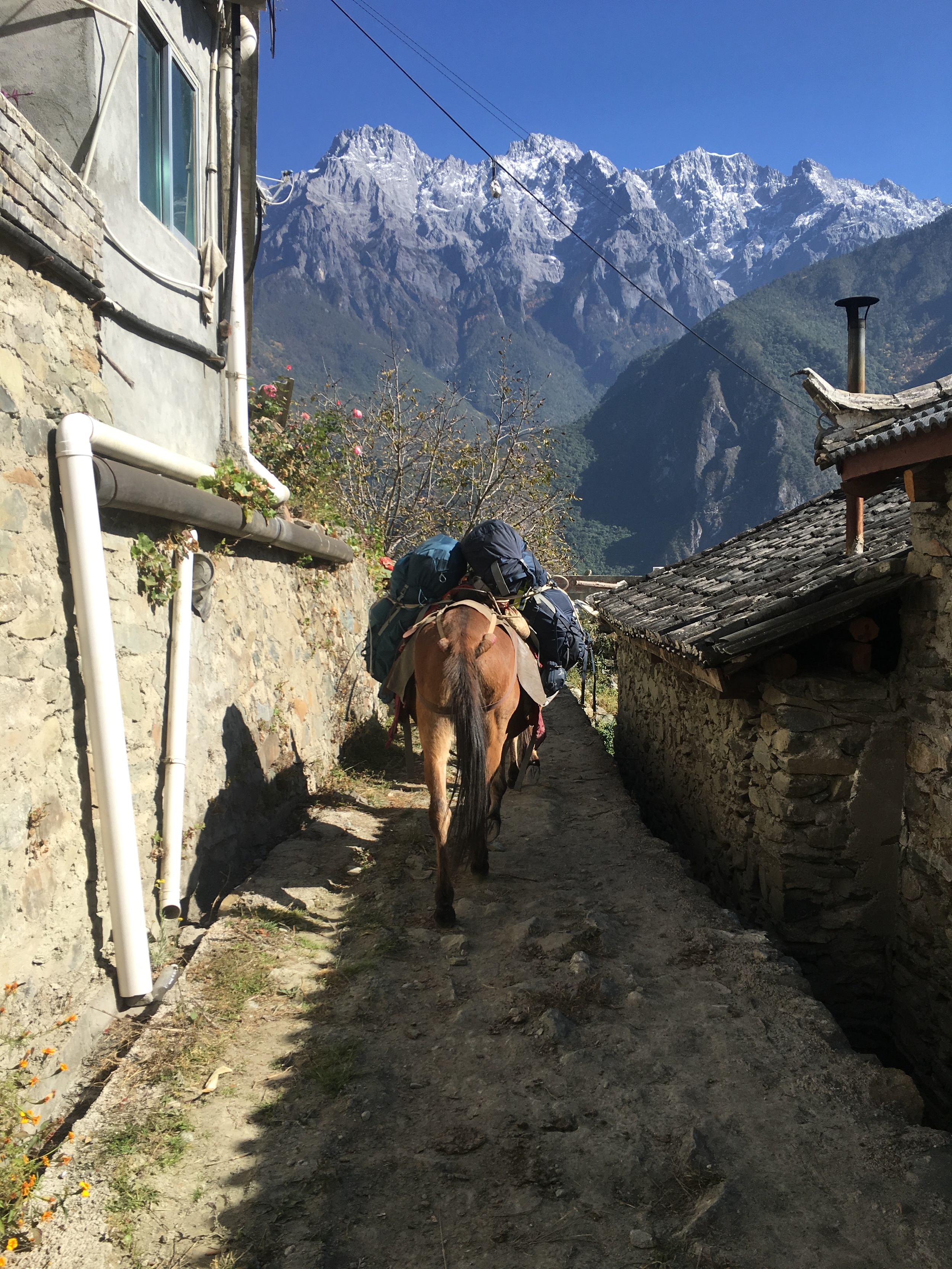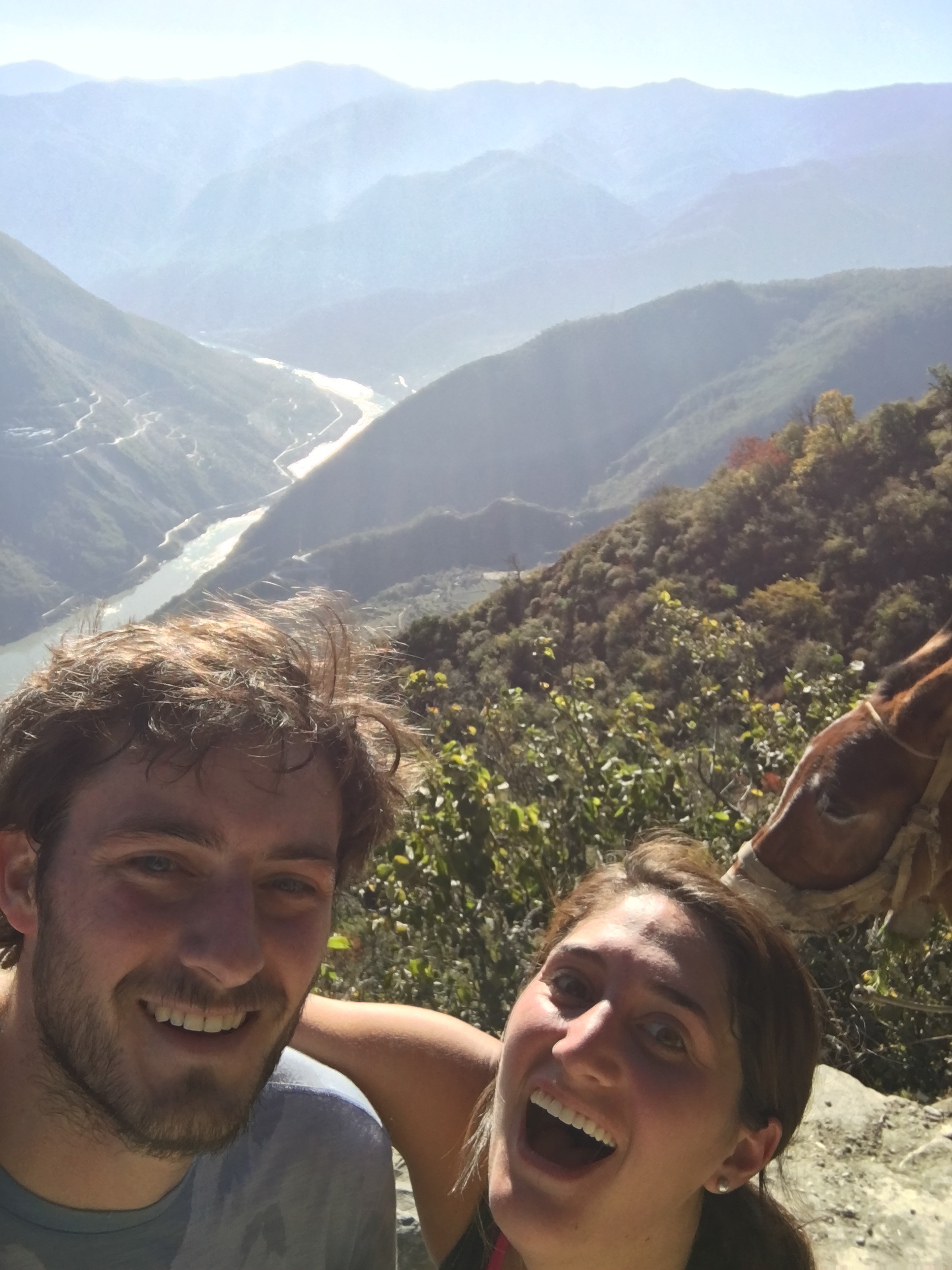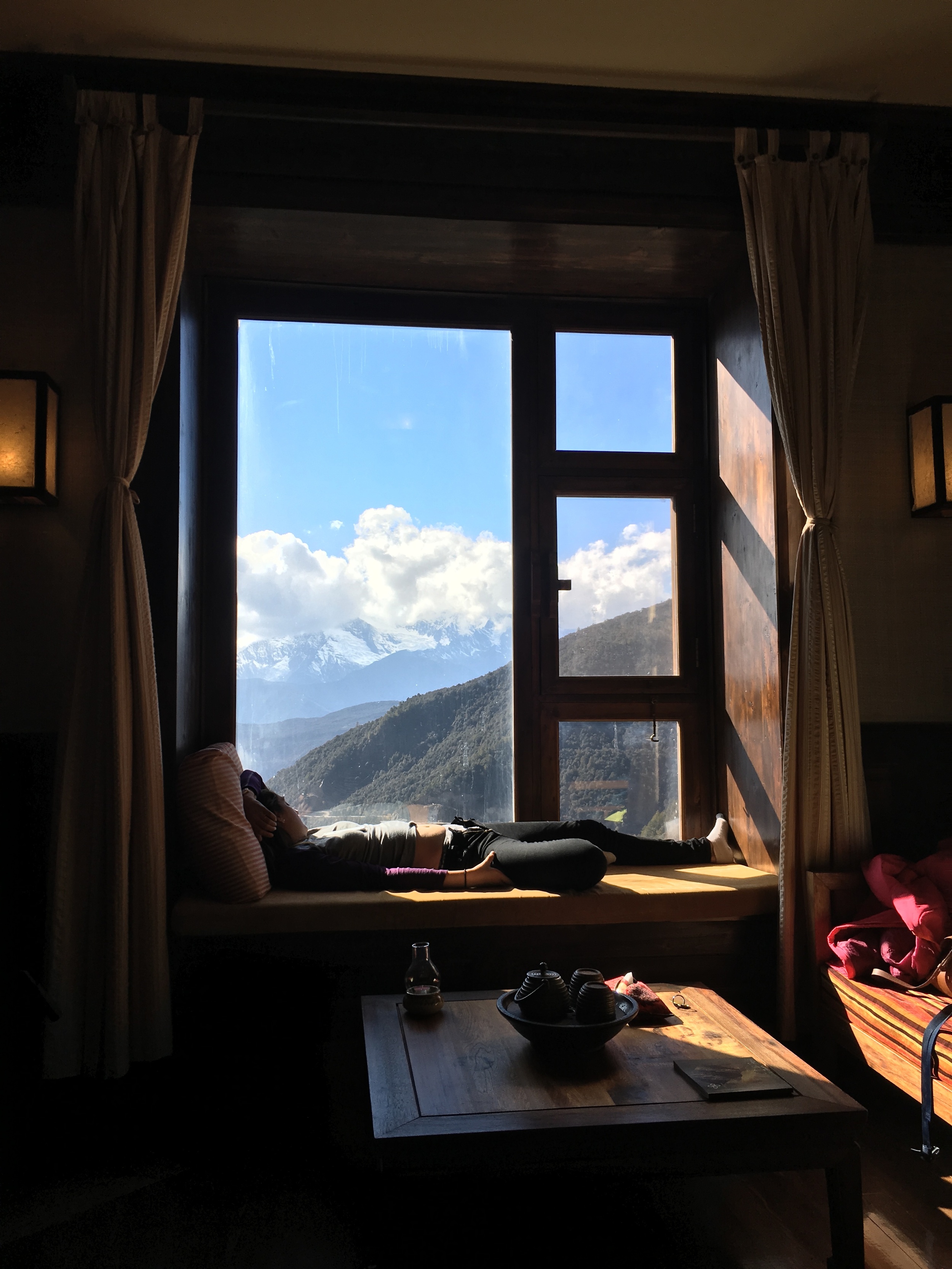Welcome to China ("it's been waiting for you")
It was probably pretty different from your typical Taylor Swift concert. According to Alex, the crowd in Philly (the other concert she went to) was a highly diverse crowd of women ranging from small packs of 13 year olds with “13” written up and down their arms like an age label to gaggles of 40 year old women on girls’ night. Lots of neon, everyone in costumes. Here it was mainly couples, late teens/early 20s, with a few coed groups of friends, same age group, all dressed for a casual night out (not much subversive TS 89 gear in sight). And relative to the melodious din of the Philly crowd, here people were fairly quiet. They knew the major entries in the T-swift canon— Love Story, Shake it Off— and chimed in tentatively for the choruses, where they got most of the notes and vowel sounds right. But otherwise it was fairly quiet, which, except for the flamboyant 19 year old Chinese boy behind us who knew all the words and was determined to attempt them all, gave Alex a private audience. Not that she minded.
Alex’s enthusiasm was enough for the whole section, lifted as it was by whirlwind of luck that had over the last 36 hours, taking her from Seoul, where she didn’t even know that Taylor Swift was performing, to the Mercedes Benz arena in Shanghai, singing her heart out. For me, watching the whole thing unfold reinforced one particular observation of life in China: the importance of knowing the right person. For us in this instance, that person happened to be a college friend, also named Alex, who has been living in Beijing for the past 6 years. After failing at various online searches and getting a "no" from the Amex platinum concierge, Alex(andra) had resigned herself to the sad fact that we were probably too late to get tickets to the sold out show. But then, Alex(ander) suggested we try Grabtalk, a new Beijing-based WeChat concierge service that might be able to help. Sure enough, after following them on WeChat (for the uninitiated, WeChat is the Chinese version of every social media (facebook, twitter) and practical (venmo, uber) app rolled into one), we had been connected to an English-speaking concierge who took our request… and 24 hours later we walked out of our Airbnb to meet a messenger on motorcycle pulling up with two tickets to the sold out concert. Checking the face value of the tickets, I was shocked to see it was only 20 dollars less than what we had paid. So easy. You just had to look in the right place.
It’s not that things in China are clearly corrupt (though corruption is certainly a problem), it’s that for a foreigner, it’s a difficult place to navigate, as the contours of the business landscape are made up more by relationships and insider knowledge than by laws and public information. Alex and I were both impressed by the amount of opportunity and entrepreneurship in Shanghai; the vast majority of the people we met (through a friend of Alex’s and through our friendly Airbnb host) had started businesses of one kind or another- restaurants, a bar, a design firm, etc. But even the conversations with those people highlighted the same fact. For instance, as an entrepreneur you might need a “fixer” to deal with licensing problems, or you might need to “fix” things yourself. On this front the best anecdote I’ve heard was about a friend of a friend: After living in Shanghai for some time, this expat had started an ice cream place, which in a short amount of time took off and became extremely successful. Then one day he showed up to the shop to find it closed, boarded up with some mysterious health violation. At least mysterious until a week later an almost identical ice cream shop opened next door, run by a local. Now you might think the story ended here, but the man was undeterred. Instead of moving on to a new venture, he looked up the official who had shut him down and over the course of a couple months became friends with him, took him to dinner, etc. Later, when he asked to be put back in business, the official boarded up the local shop and let him reopen. I particularly like the story because it highlights that it’s not a game that closed to Westerners. It’s just a very different game.
Our time in Shanghai was great; we found the city surprisingly cosmopolitan while remaining thoroughly Chinese, and a lot of fun. But our time there was short and after only three days we flew to the Yunnan province, which was also thoroughly Chinese and fun, but otherwise had very little in common. Yunnan, with its vast expanses of land, pockets of human settlement, and agriculture dotting rolling hills and majestic mountains, is one of those places that reminds you how large the world is and how for the vast majority of people, New York is not at the center of it. Landing in Kunming, Alex and I had one of the moments where we were like “wow, can you imagine living here?” And then from there you drive for hours and town after town passes by the window and you think “wow, what it would it be like to live here?” But people do. Lots of them.
We did get the chance to meet a local entrepreneur. We met him near the ticket office to the Tiger Leaping Gorge hike, when I asked him for directions. He was a short man probably in his sixties (though he could have been older), Naxi by ethnicity, wizened and crinkled by sun. He pointed us in the right direction, and then, as we started to walk up the road toward the start of the trail, to our surprise he started to follow us. We passed by a couple donkeys on the hill, and as he passed them he untied them and then continued after us. We stopped, he stopped, staying about 10 yards behind. We started, he started.
Within a half hour his business plan was all too clear. While many friends had told us of the beauty of the hike, they had neglected to mention the difficulty, and Alex and I were both carrying all of our gear. 40 lbs each, at altitude, scorching sun, straight up the dusty mountain. 45 minutes in, in the middle of our 20th water break, the man finally approached us and offered to take the packs. We refused. He shrugged, and we shouldered our packs to resume the arduous climb. But he didn’t leave. By an hour and a quarter into the hike, it was becoming clear that we weren’t going to make it, and he began to tell us so. Of course, at this point our bargaining position was not good. Without his help (and there wasn’t anyone to pit him against) we probably weren’t going to make it before dark, and we both knew it. But finally, I had to ask the ominous question… “How much?”
5 hours later and 130 US dollars poorer we arrived at our guesthouse, tired but happy to have made it one piece, reassuring ourselves that it was the best 130 dollars we ever spent. Except then we met another hiker who had left his pack with a guesthouse at the beginning of the trail. How much for this fine service? 1 dollar.
In the end, the more significant expense was the realization that our original plan to hike to Yubeng, a town on the edge of Tibet only accessible via a difficult hike, was maybe a bit out of our league at the moment. So instead of a string of cheap guesthouses we audibled to an all inclusive lodge with a nice view of the mountains. Pricey, but when you’re on the road for nine months, sometimes you need to kick back and enjoy the view.
- Cole



